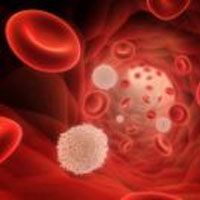Targeting Enzymes Could Reduce Rheumatoid Arthritis Joint Inflammation
Joint inflammation could be reduced in rheumatoid arthritis patients by targeting a specific enzyme, according to research from the Washington University School of Medicine in St. Louis.

Targeting fatty acids may be a viable treatment for rheumatoid arthritis (RA) and leukemia, according to study results published in Cell Metabolism on January 6, 2014.
Researchers from the Washington University School of Medicine in St. Louis examined genetically engineered mice for their ability to transform enzymes into carbohydrates, fats, and specialized white blood cells called neutrophils, a hallmark of inflammation in RA. An abundance of neutrophils are also commonly found in patients with leukemia.
The mice who were unable to make enzymes to produce a certain quantity of fat suddenly lost weight over the course of the study and developed low white blood cell counts with low neutrophils. Without the ether lipid fat, the neutrophils died.
“The link between these enzymes and neutrophils was a big surprise,” the study’s first author Irfan J. Lodhi, PhD, assistant professor of medicine, said in a press release. “We had never thought about treating rheumatoid arthritis or leukemia by targeting enzymes that produce fatty acids, but this work supports that line of thinking.”
The researchers hypothesized their discovery can lead to the targeting of the ether lipids as a way to reduce the excess neutrophils in inflammatory diseases like RA and leukemia. Limiting instead of destroying the ether lipids may be the best approach, they believe, because neutrophils are important in fighting infections.
“This may be a pathway to limit inflammation,” senior investigator Clay F. Semenkovich, MD, the Herbert S. Gasser Professor of Medicine, continued in the statement. “If we could reduce the activity of these enzymes without eliminating them entirely, it could lower the levels of ether lipids and potentially help patients with leukemia and inflammatory diseases such as arthritis.”
Semenkovich further explained that the ether lipids could be a very precise target, and can be targeted without affecting the other immune cells.
Another key point the researchers determined was that by turning off the enzymes, the precursors to neutrophils were not affected, only the mature neutrophils were eliminated. The researchers believe this discovery could lead to a temporary limiting of the ether lipids to lower the neutrophil levels, which would allow a patient’s neutrophil level to naturally rise at the cessation of treatment. The immune system would then return to normal, the investigators believe.